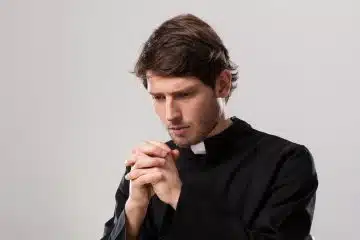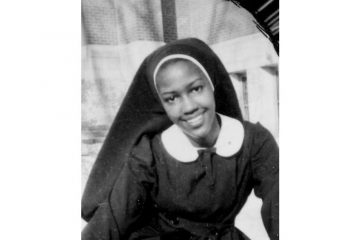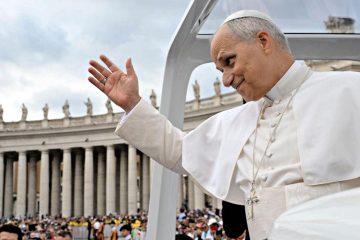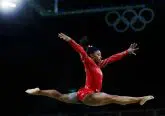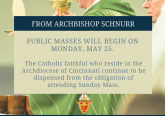Sports in the archdiocese about more than final score
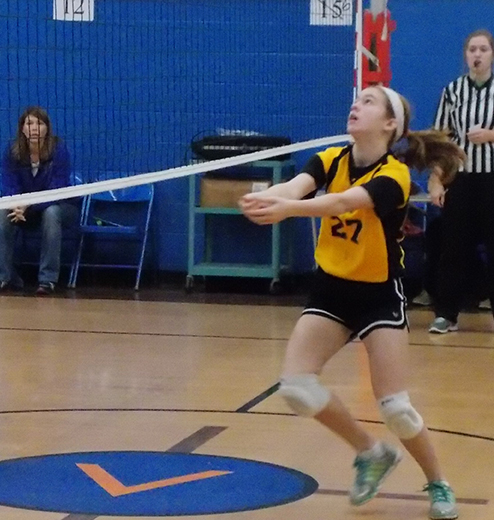
By John Stegeman
The Archdiocese of Cincinnati’s youth athletic programs are well known for on the field success. In the past 10 years, Catholic high schools in the archdiocese have won nearly 50 state titles, and those schools are fed by archdiocese elementary schools.
Just as the mission of Catholic education is about more than good grades, Catholic athletics is about more than wins and losses.
At the behest of Archbishop Dennis M. Schnurr, the archdiocese developed the archdiocesan Youth Athletics Task Force, charged with ensuring that Catholic youth athletic programs are more than just secular programs with Catholic branding.
Sean Reynolds, director of the archdiocesan Office of Youth and Young Adult Ministry, leads that effort which aims to bring consistency, cooperation and, most importantly, Catholic identity to the wide array of Catholic youth athletic leagues and booster organizations in the archdiocese. The task force deals specifically with pre-high school athletics.
The task force aims to develop recommendations regarding youth athletics. Those recommendations will be given to the archbishop, and then mandatory guidelines applying to all Catholic youth athletic organizations will be developed.
The task force comprises about 50 members and its meetings are open to the public. While the task force is fairly new, the reason for it goes back much further.
More than 30 years ago, the archdiocese discontinued youth athletics. In the void, hundreds of parishes created their own athletic associations, booster clubs and league affiliations with willing volunteers whose work ensured Catholic youth still had access to sports. The downside to the system over the past three decades has been a lack of consistency and, at times, a breakdown in the focus or purpose of youth sports in the archdiocese.
“If we have any organization that is operating under Catholic auspices is ‘Catholic in name only,’ then that’s really a problem. It detracts from the evangelizing method we’re trying to get out,” Reynolds said.
Starting in 2009, the archdiocese hosted seven listening sessions across the archdiocese to explore the future of Catholic youth athletics. Those sessions drew participation from all levels of the community and the result was Archbishop Schnurr tasking the Office of Youth and Young Adult Ministry the job of working with existing organizations to develop consistent standards across the Archdiocese.
“What the people of the archdiocese have said to us over and over again is they want athletics under Catholic auspices,” Reynolds said. “What they have said to us is they understand, and they want the understanding at large to be that athletics is part of the youth ministry mission of the Catholic Church.”
What that means, Reynolds said, is that a coach should be more than just an athletic instructor, but a youth minister helping to develop virtue and character in his or her players.
“If you think of it though that mindset, the conclusion is inescapable that the coaches are youth ministry leaders,” Reynolds said. “Now are we there yet? No… That’s where we’re headed, from the grassroots on up. It’s helping to understand that when we as Catholics meet on practice fields or gymnasiums or tournaments, we don’t check our check our Catholic identity at the gate.”
It also means that prayer will need to be something more than just a quick ritual at center court, but the center of all things, with games, practices and booster club meetings opening and closing with prayer. The initiative is working to develop resources that will assist coaches and others with the mission.
“They have a very challenging job,” Reynolds said. “What we’re envisioning is through technology, making resources available to them. If for instance they’re looking for a prayer to use with their kids they can just go online and find it immediately.”
Another change likely to be part of the initiative’s final recommendation is the elimination of any and all athletic events on Sunday mornings, reserving that time for worship at Sunday Mass.
“I’m proud of the people working on this athletics initiative because we are absolutely all of one mind that athletic events, games, meetings — that none of this should be happening on Sunday mornings in our parishes and schools. When it comes to Sunday worship, one of the questions coming from the youth athletics initiative to our high schools will be, ‘What is happening on Sunday mornings that may be pulling people away from Sunday Mass?’”
He added, “For instance, if there are either high school teams or elementary kids coming into the high school on Sunday mornings to use the facilities, that’s counterproductive. That’s sending the wrong message to our own people about what this is all about.”
Another fact the Youth Athletics Initiative has taken into consideration is the wide variance of parish communities throughout the archdiocese. Many parishes are large and have a large school with its own athletics program. Some others are much smaller, with pastoral regions leading to consolidated schools or athletics.
“We need to be responsive to where our church is today and where it’s going to be in some years. We need to be respectful of your (parishes) that have a big parish community and a big school and that’s all a unit. Then we have other pastoral regions that may have consolidated schools and some cases where there is no Catholic school. We need to be responsive to all those. The baseline that we operate from would be parish membership more than school membership.”
The Youth Athletics Initiative has a lot of ground to cover, but it has a firm direction. If something is going to be called “Catholic athletics” in the archdiocese, it is going to mean something more than the final score.
“Whether its scouting, athletics or a Catholic school that has very few earmarks of what it is that we’re about,” Reynolds said, “If there’s no difference between what we’re doing and what a secular league is doing, then why are we doing it?”



